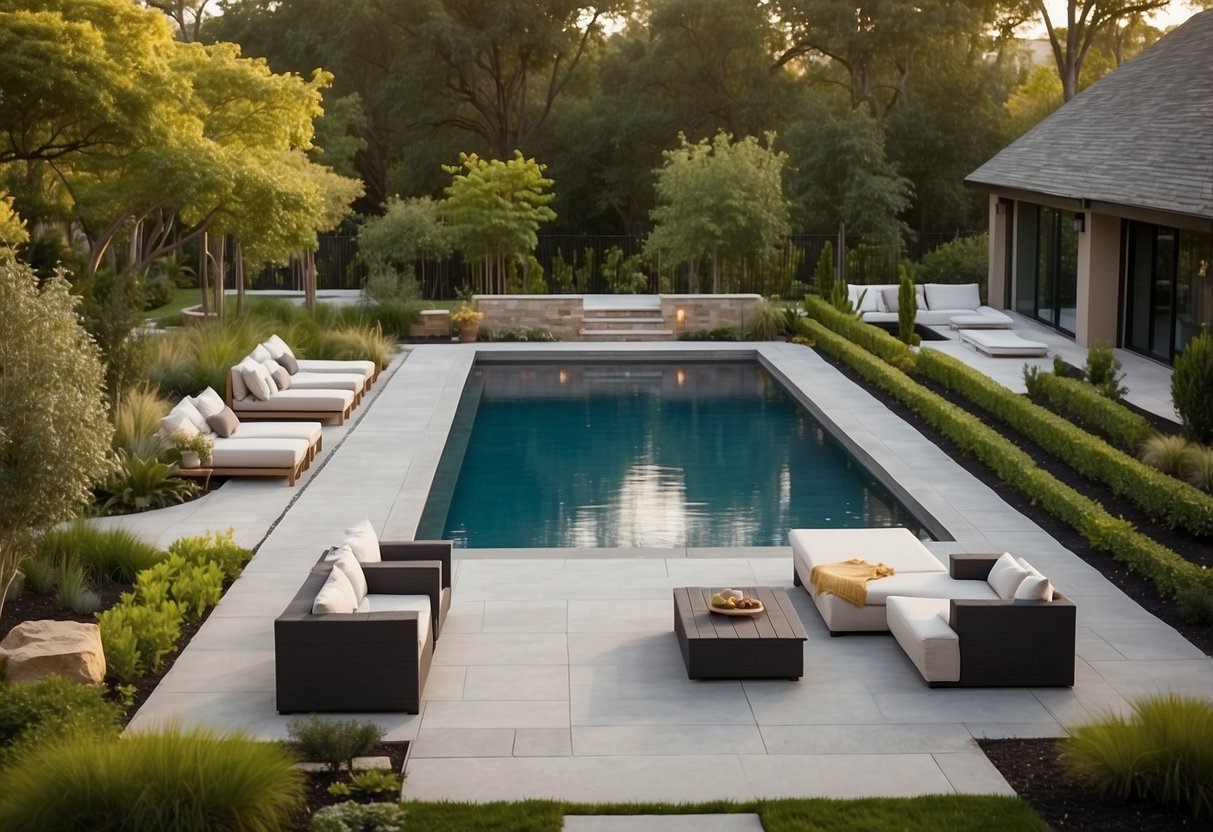Creating a custom pool is an exciting venture, but it’s important to think about several key factors before starting the project. Choosing the right location is crucial because it affects both the pool’s functionality and its integration into your outdoor space. Another important aspect is the pool’s shape and size, which should match both your yard’s layout and your family’s needs.

Material selection also plays a significant role in the design process. Options include concrete, fiberglass, or vinyl, each with their own benefits and drawbacks. Lastly, features like lighting, heating, and safety components can enhance both the aesthetic and practical aspects of your pool. By considering these elements, homeowners can create a pool that is not only visually appealing but also tailored to their lifestyle.
Designing Your Custom Pool

Designing a custom pool involves choosing the right pool type, defining the ideal size and shape, and adding aesthetic details that elevate the whole look.
Understanding Custom Pool Types
When designing a custom pool, the first step is understanding the different types. In-ground pools are popular for their durability and variety. These can be made from materials like concrete, vinyl, or fiberglass. Fiberglass pools are smooth and quick to install.
Above-ground pools are more budget-friendly and easier to set up but may not offer the same durability or aesthetics. Lap pools, designed for swimming lengths, are ideal for exercise. There’s also the freeform pool, which features natural shapes, giving it a more organic look. Each type of pool has its pros and cons, and the choice depends on budget, space and personal preferences.
Selecting the Perfect Size and Shape
Choosing the size and shape of your custom pool is crucial. Pool size and shape must fit the available space and meet usage needs. Lap pools are long and narrow, perfect for swimmers. Oval pools and freeform pools provide more space for casual swimming and play.
Consider the dimensions of your backyard. A small yard may require a compact pool. Larger spaces can accommodate more complex shapes and sizes. The shape can also influence the pool’s flow and function. Rectangular shapes suit a modern look, while freeform pools can create a more naturalistic feel.
Incorporating Aesthetic Elements
Aesthetic elements transform a basic custom pool into a stunning backyard feature. Decorative touches like waterfalls, fountains, and bubblers can add audio and visual appeal. Lights enhance evening swimming and improve safety.
Tiles and mosaics can add color and personality. Landscaping around the pool, such as plants or decking, helps integrate the pool with the surroundings. Consider features like a vanishing edge for a luxurious touch or incorporating accent pieces to match the home’s exterior. Each element adds to the pool’s appeal, creating a unique and inviting environment.
Practical Considerations for Pool Design

Designing a custom pool involves several practical aspects. The key points to focus on include budgeting, compliance with safety measures, and maintenance requirements. Each of these factors has distinct details that impact the overall satisfaction and functionality of your pool.
Budgeting and Costs
Initial Costs: When planning a pool, one of the first steps is figuring out the budget. This involves construction costs, materials, and landscaping. High-end materials like natural stone are beautiful but pricey. More affordable options include concrete or fiberglass.
Financing Options: Pools are a significant investment. Homeowners can explore various financing options like home equity loans or personal loans. Comparing interest rates and terms is essential to find the most suitable plan.
Maintenance Expenses: Maintenance costs are ongoing. Typical expenses include chemicals, cleaning tools, and occasional repairs. Investing in energy-efficient pumps and filters can save money in the long run. Solar heating systems might have a higher upfront cost but lower long-term expenses.
Compliance and Safety Measures
Building Codes and Regulations: Pools must comply with local building codes and regulations. These codes cover aspects such as depth, barriers, and drainage. Consulting local authorities ensures that all legal requirements are met.
Safety Features: Safety is crucial. Install barriers like fencing and gates to prevent unauthorized access. Safety covers and handrails are additional features that enhance safety, especially for children and pets.
Safety Equipment: Equipping the pool with the right safety gear is essential. This includes life vests, pool alarms, and first aid kits. Ensuring easy access to these items can prevent accidents.
Maintenance and Upkeep
Regular Cleaning: Consistent maintenance is key for a clean and functional pool. Tasks include skimming debris, vacuuming, and maintaining chemical balance. Pool owners should establish a routine to keep their pool pristine.
Seasonal Care: Different seasons require different maintenance routines. Winterizing a pool involves draining water, covering the pool, and protecting pipes. In warmer months, more frequent cleanings and checks on filtration systems are necessary.
Eco-Friendly Options: To reduce environmental impact, consider eco-friendly options. Energy-efficient pumps, solar heating systems, and green cleaning products help maintain the pool while being kinder to the environment. These choices can also lower operational costs over time.
Professional Services: Some aspects of pool maintenance are best left to professionals. Hiring experts for tasks such as deep cleaning or major repairs ensures durability and safety. Regular professional inspections can prevent minor issues from becoming major problems.

